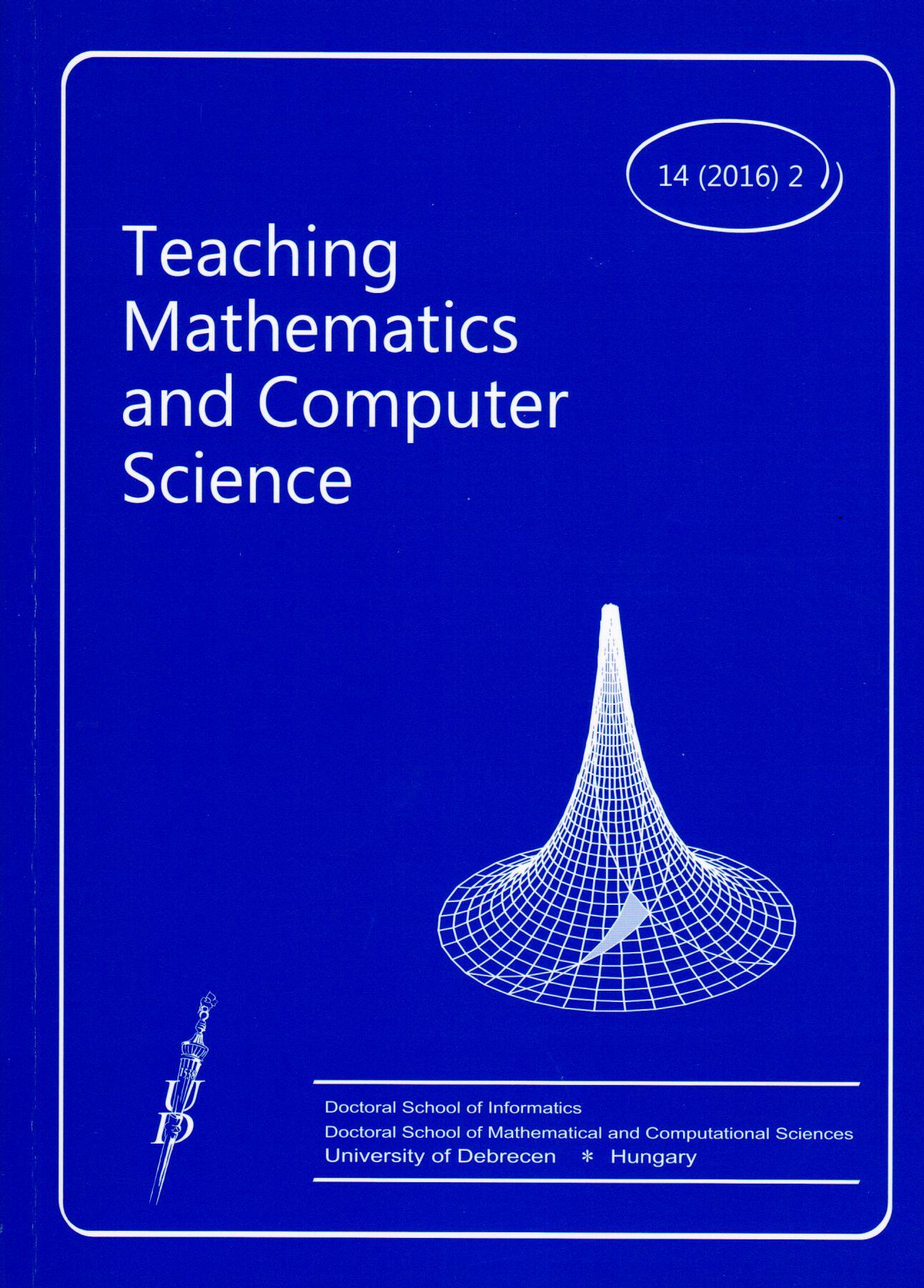Articles
Regula falsi in lower secondary school education
Published:
2016-12-01
Author
View
Keywords
false position method regula falsi guess-and-check trial-and-error arithmetical procedures algebraic methods
License
Copyright (c) 2016 Zsolt Fülöp

This work is licensed under a Creative Commons Attribution 4.0 International License.
How To Cite
Selected Style:
APA
Fülöp, Z. (2016). Regula falsi in lower secondary school education. Teaching Mathematics and Computer Science, 14(2), 169-194. https://doi.org/10.5485/TMCS.2016.0422
Abstract
The aim of this paper is to offer some possible ways of solving word problems in lower secondary school education. Many studies have shown that pupils in lower secondary school education (age 13-14) encounter difficulties with learning algebra. Therefore they mainly use arithmetical and numerical checking methods to solve word problems. By numerical checking methods we mean guess-and-check and trial-anderror. We will give a detailed presentation of the false position method. In our opinion this method is useful in the loweer secondary school educational processes, especially to reduce the great number of random trial-and-error problem solving attempts among the primary school pupils. We will also show the results of some problem solving activities among 19 grade 8 pupils at our school. We analysed their problem solving strategies and compared our findings with the results of other research works.

 https://doi.org/10.5485/TMCS.2016.0422
https://doi.org/10.5485/TMCS.2016.0422






